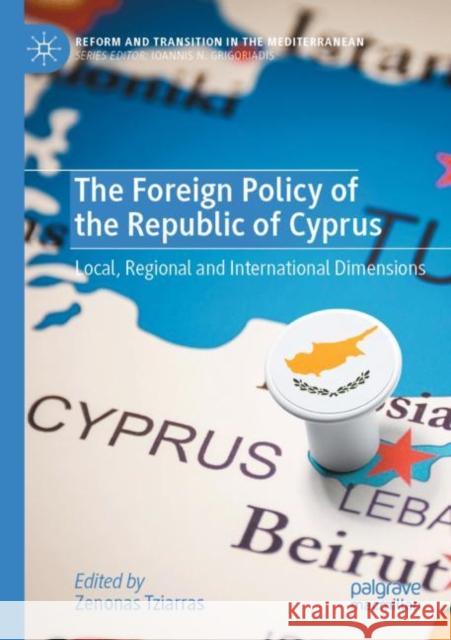The Foreign Policy of the Republic of Cyprus: Local, Regional and International Dimensions » książka
The Foreign Policy of the Republic of Cyprus: Local, Regional and International Dimensions
ISBN-13: 9783030911799 / Angielski / Miękka / 2023 / 372 str.
The Foreign Policy of the Republic of Cyprus: Local, Regional and International Dimensions
ISBN-13: 9783030911799 / Angielski / Miękka / 2023 / 372 str.
(netto: 499,55 VAT: 5%)
Najniższa cena z 30 dni: 501,19
ok. 22 dni roboczych
Bez gwarancji dostawy przed świętami
Darmowa dostawa!
This book examines the foreign policy of the Republic of Cyprus, particularly since 2004—the year of its accession to the European Union and of the failed Annan Plan V of the United Nations which aimed to solve the decades-old Cyprus Problem. Scholarly work about the politics and foreign policy of the Republic of Cyprus (RoC) has been almost entirely analyzed through the prism of the Cyprus Problem. This is not without justification since the Cyprus Problem is indeed central to the social, political, and economic life of Cyprus. However, Cyprus is located in a highly neuralgic area of historical and geopolitical importance that is, more often than not, characterized by rapid developments, instability, and insecurity. Therefore, the RoC’s politics and foreign policy go well beyond the confines of the Cyprus Problem, or so they should. Although the subject of the book is not international by definition, the book touches upon many regional and international dimensions that render it relevant for anyone who wants to better understand not just Cyprus but also the broader region and its importance for regional and international actors.
This book examines the foreign policy of the Republic of Cyprus, particularly since 2004—the year of its accession to the European Union and of the failed Annan Plan V of the United Nations which aimed to solve the decades-old Cyprus Problem. Scholarly work about the politics and foreign policy of the Republic of Cyprus (RoC) has been almost entirely analyzed through the prism of the Cyprus Problem. This is not without justification since the Cyprus Problem is indeed central to the social, political, and economic life of Cyprus. However, Cyprus is located in a highly neuralgic area of historical and geopolitical importance that is, more often than not, characterized by rapid developments, instability, and insecurity. Therefore, the RoC’s politics and foreign policy go well beyond the confines of the Cyprus Problem, or so they should. Although the subject of the book is not international by definition, the book touches upon many regional and international dimensions that render it relevant for anyone who wants to better understand not just Cyprus but also the broader region and its importance for regional and international actors.











